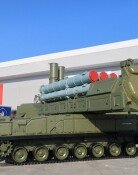Duty-Free Shops for Natives in Jeju
Duty-Free Shops for Natives in Jeju
Posted November. 20, 2001 08:56,
The government announced a comprehensive plan for developing Jeju Island as an `international free city`. The domestic and foreign businesses that invest into the Jeju Island`s tourism industries will receive exceptional tax exemption, and the government will allow great autonomy to the schools in Jeju.
The government finalized the `basic plan of Jeju international free city` to develop Jeju Island as a multi-functional city of tourism and recreation, which has environmental affinity, and of advanced intellectual industry, physical distribution and financial industries by 2010, in a related ministries` meeting presided by Prime Minister Lee Han-Dong, on 19th.
According to the basic plan, the government will gradually extend so-called `no-visa entry` into Jeju to the tourists from 17 countries, such as Vietnam, Mongolis, and Cambodia, etc., and will also allow their access to mainland to a limited extent.
The government plans to extend the length of no-visa stays for Chinese tourists from the current 15 days to 30, and will allow the foreign experts` length of stay up to 5 years.
The government will offer various tax incentive plans for attracting investment on tourism industry in Jeju. The domestic and foreign businesses that invest more than 10-30 million dollar will be exempted from corporation, income, and provincial taxes for three years, and will receive 50 percent of tax reduction for the following two years. The qualification for establishing a business in the free trading area near Jeju Airport will be extended to domestic investment companies, and various tax reductions will be given 10 years for foreign companies and 5 years for domestic companies.
The administrative bodies of the Jeju Islands will receive official documents written in English to promote international environment. The government decided to allow great autonomy over education, such as the standard for establishing colleges, the curricula, and the admission policies. For example, foreign universities are allowed to open their branch schools in Jeju. Korean students` qualifications for admission to study at the international schools in Korea, which is currently given for the students who have lived at least 5 years in abroad, will be decided by the autonomy of each school`s principal.
Duty-free shops for natives will be open at the airport and harbors in Jeju, and Koreans will be exempted from tariff, value added tax, and special excise tax for the goods of maximum purchase of 300 dollars per visit, which is limited 4 times a year. Various heavy taxes (5-25 times) on golf courses will be transformed into regular taxes and will be reduced, and the green fee will be reduced for 40-50 percent from current 108,000 won (for nonmembers during weekdays).
In order to promote the development, the government decided to pursue the 7 selected leading projects ▲ creating a recreational residential complex ▲ expansion of the Jungmoon tourist complex ▲ development of Suguipo tourist harbor ▲ creating Jeju advanced science and technology complex ▲ creating a free trade area in Jeju Airport ▲ development of shopping outlet ▲ creating the parks of ecology, mythology and history.
However, there would be disputes over the plans because some civic organizations in Jeju are against the `basic plan` and `special bill` with the claiming that, "the plan does not reflect public opinions."
Chol-Hi Lee klimt@donga.com
Headline News
- Ukraine says N. Korea’s first troops arrive in Kursk
- N. Korea begins installing barriers on Donghae Line after 'bombing show'
- K-defense operating profit expected to jump by 200% in Q3
- Seoul City launches DDP rooftop tours, celebrating 10th anniversary
- Ahn Jung-geun’s historic writings return to Korea in 15 years







